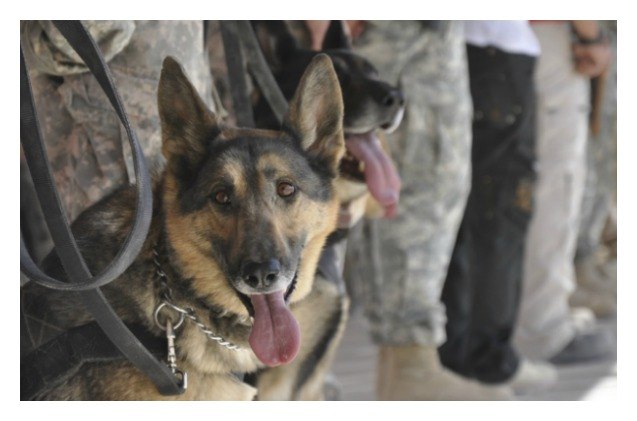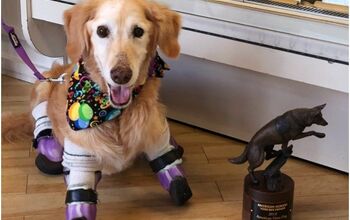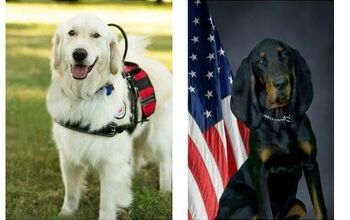American Humane Turns Shelter Dogs to Service Dogs For Veterans

Military service members and veterans can suffer from life-changing Post Traumatic Stress ( PTS) and Traumatic Brain Injuries ( TBI) due to the nature of their service, and the American Humane wants to serve those American heroes and save the lives of shelter dogs at the same time.
Related: HABRI Grants $42,000 To Study Effects Of Service Dogs On War Veterans With PTSD
President and CEO of American Humane, Dr. Robin Ganzert, says that every day, 20 American veterans commit suicide on average, and it is estimated that nearly 700,000 dogs a year are euthanized in United States shelters. Working through the Lois Pope Life Center for Military Affairs, American Humane will attempt to make a dent in both of those numbers, by launching this program.
Research shows that service dogs trained to work with PTS and TBI patients make life-long, and often lifesaving, impact on the lives of those veterans who suffer with those issues. The problem is that wait lists are long because the training process takes time and can cost up to $20,000 per dog to specially train. American Humane plans to offer PTS and TBI service dogs to veterans in need fully at their own expense; veterans who receive the dogs will not pay anything.
Related: Paws For Veterans Trains Rescue Dogs To Help Heroes With PTSD
Currently, the Department of Defense does not pay for the training and/or delivery of specialized service dogs to its veterans, with the exception of a sometimes-stipend of $500, and that is not always guaranteed. While many are lobbying to make that different, corporate sponsors of American Humane’s veterans’ assistance program like Hallmark Channel, Kriser’s Natural Pet and Boehringer Ingelheim Animal Health, as well as individual donors’ generous donations are currently making the program possible.

More by Lori Ennis























